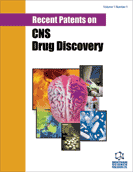Abstract
Alzheimers disease (AD) is the most prevalent neurological disease with dementia. AD-related dementia is caused by death and dysfunction of neurons involved in cognitive function. It has been generally believed that increased levels of toxic amyloid-betas (Aβs) are linked to the occurrence of neuronal death as well as dysfunction (Aβ cascade theory). Consequently, lowering levels of toxic Aβs in the brain is considered to be central for therapy of AD. Multiple drug candidates based on this therapeutic strategy have been developed and are being vigorously developed. Some clinical studies have indicated that this strategy is effective. In addition to this theory, Aβ-independent pathomechanisms have been shown to contribute to the progression of AD-related dementia, justifying alternative strategies for AD treatment that are effective against Aβ-independent pathomechanisms. A possible therapeutic strategy belonging to them is to directly suppress AD-related neuronal death and dysfunction. A series of studies indicated that a 24-amino-acid bioactive peptide named Humanin was shown to inhibit neuronal cell death induced by enforced expression of familial AD-related genes. Humanin also protected neurons from being killed by toxic Aβs in vitro. In addition, neuronal dysfunction-associated dementia of mice caused by muscarinic receptor antagonists and intracranially injected toxic Aβs was ameliorated by Humanin therapy. Multiple studies have indicated the existence of a putative specific Humanin receptor on the cell membrane. These results together suggest that an endogenous AD-related humoral factor(s) may inhibit the progression of AD-related dementia by inhibiting both neuronal cell death and dysfunction in vivo. Malfunction of this self-defense mechanism is also hypothesized to be another etiology or an aggravator of AD. Moreover, from a standpoint of AD therapy, stimulation of the AD defense mechanism by a potent Humanin derivative is a promising alternative strategy for AD treatment. The present patents cover Humanin and the methods of its clinical usage.
Keywords: Alzheimer's disease, neuronal death, neuronal dysfunction, Humanin, Aβ
 47
47





















